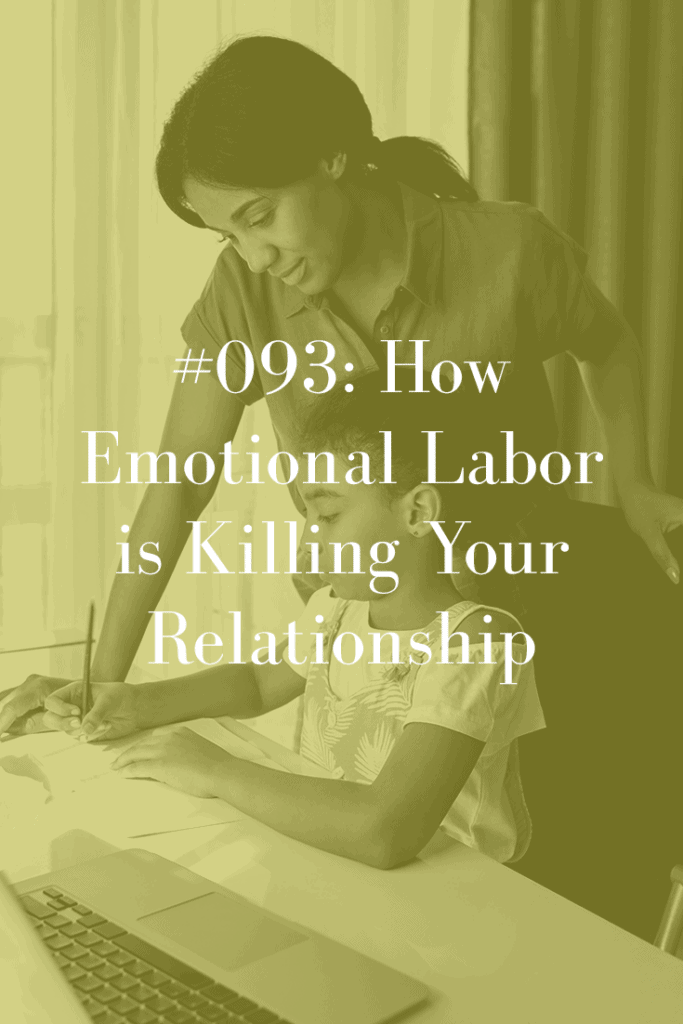
You’re a woman and you’ve made dinner and now you’re in the kitchen doing the dishes. Your partner has dutifully cleared the table and is now standing in the kitchen chatting with you. While it’s very nice that they’re bonding with you, you’re biting your tongue because you don’t understand why they’re not sweeping the floor, wiping off the counter or drying some dishes while they chat.
You’re a man and you’ve just dutifully cleared the table and you’re now in the kitchen chatting with your wife and having a great conversation. You’re thinking, hey, we’re bonding! I’m being awesome and keeping her company and we’re having those talks she loves. But, you notice that she’s getting short with you and that the energy has become chilly. You’re thinking, “What the heck did I do wrong now?!”
If you’ve been in this situation, today’s episode is for you.
What the Heck is Emotional Labor Anyway?
In 1983, Arlie Hochschild, professor emerita of sociology at the University of California, Berkeley, coined the phrase “emotional labor” in her book The Managed Heart. It was initially used as a workplace term and referred to the need to keep your personal life at home when you got to work. So, any private worries, issues or concerns shouldn’t interfere with your ability to fulfill the emotional requirements of your job. This term has since come to more commonly refer to all the pieces we need to think about in running a family, such as making meals, cleaning, shopping, childcare, and overall love and support. For hundreds of years, the emotional labor of the American family rested almost solely with the wife/mother’s role.
I’ve got a five-step process to help you get the emotional labor on more level ground.
Step 1: You’ve got to talk about it.
Step 2: Truly listen and ask good questions.
Step 3: Men, take over the emotional bond
Step 4: Women, Look at Yourselves
Step 5: Women – Be Open to a New Standard
Resources and Links:
Bad Questions Are Ruining Your Relationship
Answering Bids in Your Relationship
If You Want to Communicate, You’ve Got to Listen First
Gemma Hartley, “Women Aren’t Nags—We’re Just Fed Up,” Harper’s Bazaar
Gemma Hartley, Fed Up: Emotional Labor, Women, and the Way Forward
Arlie Hochschild, The Managed Heart
U.S. Bureau of Labor Statistics, Employment Characteristics of Families Summary
U.S. Bureau of Labor Statistics, Employment Characteristics of Families
University of Michigan, “Exactly How Much Housework Does a Husband Create?”
Sharon Jayson, “Men vs. Women: How Much Times Spent on Kids, Job, Chores?,” USA Today












